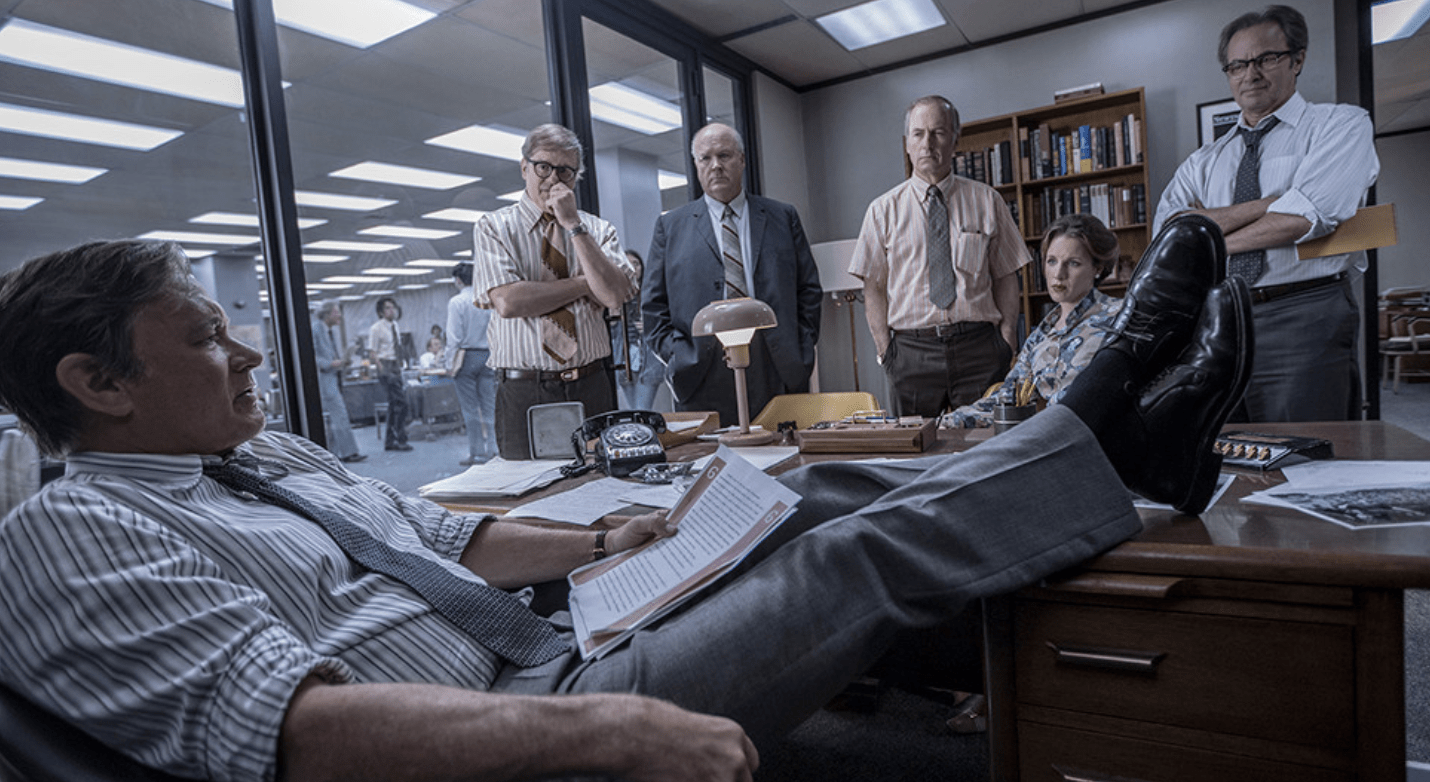‘The Post’: A Brilliant Reminder of What Democracy Looks Like
As a lying president conducts a daily war against the media in Washington, ‘The Post’ is a story of how the system would be working if truth weren’t buried under a deluge of nonsense.

By Lisa Van Dusen
January 25, 2018
Of all the things the Steven Spielberg Pentagon Papers drama The Post is, a period piece isn’t one of them.
Yes, it’s set in 1971. Yes, there are shots of hot-metal typesetting and everyone’s smoking their heads off. Newsrooms were noisy and at Georgetown dinner parties, the women, including Washington Post publisher Katharine Graham, peeled off in a gaggle after dessert to let the men talk about big important things over cognac and Cohibas.
Meryl Streep “Streeps” Katharine Graham the way she “Streeped” Margaret Thatcher and Karen Blixen and the woman whose baby really was, it turned out, eaten by the dingo, making her portrayal — nominated Tuesday for a best actress Oscar — seem more authentic than the original. The bonus is that Tom Hanks does the same with the late Ben Bradlee, filling out the margins left by Jason Robards’ indelible All the President’s Men-deus ex machina Bradlee with the real guy in all his every day, helplessly charismatic glory. The way Bradlee and Graham play off each other’s strengths and weaknesses through the crisis both presages Watergate and reminds us that Woodward and Bernstein weren’t the paper’s only fateful duo.
As has been said by Spielberg about the film, which was nominated for best picture Tuesday, the issues at the heart of the New York Times and then the Washington Post’s decision to publish parts of the Pentagon Papers detailing the ways in which successive administrations had lied about the Vietnam War resonate inescapably with current events. “The level of urgency to make the movie was because of the current climate of this administration, bombarding the press and labelling the truth as fake if it suited them,” the director told The Guardian recently.
The real distance between today and The Post isn’t about the retro quaintness of pay phones and typewriters, it’s about the gap between how things are and how they should be. It’s a story about American journalism and government in which the truth — represented with the same moral clarity that Spielberg brought to Schindler’s List, Saving Private Ryan and Lincoln — steals every scene just for seeming exotic at a time when lies have become so unbelievably common.
Over the past 20 years, the internet has slowly boiled the frog of legitimate journalism by decimating ad revenue, glutting the market with free content, blurring the line first between news and opinion and then between fact and fiction. Add to that the resource-sucking obligatory coverage on perpetual deadline of the non-stop bonfire that is the current president and scenes of a dozen reporters and editors spending hours poring over thousands of pages of truth in Bradlee’s living room seem like a parallel-universe dream sequence.
Above all, The Post is a reminder that democracy can’t function without a robust, fact-based, incorruptible free press. Which may be why, amid other recent degradations of democracy, truth and the people who report it in Washington are being buried in a deluge of tactical nonsense. The Post feels less like a flashback than an excavation of the genuine America currently obscured by that nonsense.
One of the most powerful moments in the movie comes toward the end, when then-deputy editorial page editor Meg Greenfield, played by Carrie Coon, announces the Supreme Court’s decision in the Post’s favour to a tense newsroom by repeating the news from a reporter phoning from the scene. Quoting Justice Hugo Black’s opinion, she says:
“In the First Amendment the Founding Fathers gave the free press the protection it must have to fulfill its essential role in our democracy. The press was to serve the governed, not the governors.”
It was true then and it’s true now.
Lisa Van Dusen is associate editor of Policy Magazine. She was Washington bureau chief for Sun Media, a writer for Peter Jennings at ABC News, and an editor at AP in New York and UPI in Washington.
